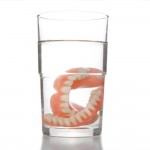
Most developed countries have shown a declining trend in edentulism and there has been an increase in the provision of implant- support dentures. However complete dentures continue to represent a realistic treatment option for many edentulous patients. Conventional fabrication of complete dentures involves a number of clinical and laboratory steps and a number of simplified approaches have been suggested that require fewer visits, a shorter fabrication time and are less costly.
The purpose of this systematic review and meta-analysis was to evaluate the efficiency of simplified denture fabrication techniques in comparison with conventional techniques
Methods
Searches were conducted in the Medline/PubMed, Cochrane Central Register of Controlled Trials, and Scopus databases. Randomised control trials (RCTs) comparing conventional versus simplified denture fabrication techniques were considered. Two reviewers independently assessed the studies and assessed risk of bias by using the Cochrane tool. The primary outcome was patient satisfaction. Secondary outcomes were oral health related quality of life (OHRQoL), cost of fabrication, clinical time up to denture delivery, masticatory ability, masticatory performance, and denture quality. Continuous outcome data was reported as mean difference (MD) with 95% confidence intervals (CIs) if the outcomes were measured on the same scales and standardized mean difference (SMD) when measured on a different scale. Random effects meta-analysis were conducted.
Results
- 19 RCTs (14 parallel arm designs and 5 cross-over designs) were included.
- 3 studies were at low risk of bias, 4 at unclear risk and 12 at high risk of bias.
- Pooled estimate (4 studies) for patient satisfaction at 6 months, SMD= 0.02 (95%CI; -0.22 to 0.27)
- Pooled estimate for OHRQoL;
- 1 month (3 studies); SMD = -0.20 (95%CI; -0.54 to 0.15),
- 3 months (2 studies); SMD = -0.45 (95%CI; -0.93 to 0.03),
- 6 months (4 studies); SMD = -0.01 (95%CI; -0.30 to 0.28).
- Pooled estimate for cost of fabrication favoured the simplified approach (3 studies);
- MD = -77.34 (95%CI; -122.45 to -32.24).
- Pooled estimate for masticatory efficiency;
- 3 months (3 studies); SMD = 08 (95%CI; -0.26 to 0.41),
- 6 months (2 studies); SMD = -0.10 (95%CI; -0.42 to 0.23).
Conclusions
The authors concluded: –
Simplified techniques were cost effective and less time consuming than the CT, with no significant difference in patient satisfaction or oral health-related quality of life. The high risk of bias and heterogeneity among studies requires that the results be considered cautiously.
Comments
We previously looked at a review on this topic in 2016 (Dental Elf 4th Apr 2016). Only 7 RCTs were included in that review while the current review includes 19. While a number of meta-analyses have been conducted the largest number of studies included in any of these was 4. Analyses were also conducted at a number of time points and of those conducted only the cost of fabrication was significant, favouring the simplified approach. While a good number of RCTs have been included in the review only 3 of the 19 were considered to be at low risk of bias so the findings should be viewed cautiously. Although the findings do suggest that there are no difference between the simple and conventional approaches in terms of patients satisfaction, masticatory efficiency and OHRQoL at least in the short term.
Links
Primary Paper
Sanjeevan V, Rajagopal P, Venkitachalam R, Aras M. Efficiency of simplified versus traditional denture fabrication methods: A systematic review and meta-analysis [published online ahead of print, 2020 Sep 2]. J Prosthet Dent. 2020;S0022-3913(20)30403-0. doi:10.1016/j.prosdent.2020.07.003
Other references
Dental Elf 4th Apr 2016
Simplified complete denture fabrication can replace traditional approaches suggests review
